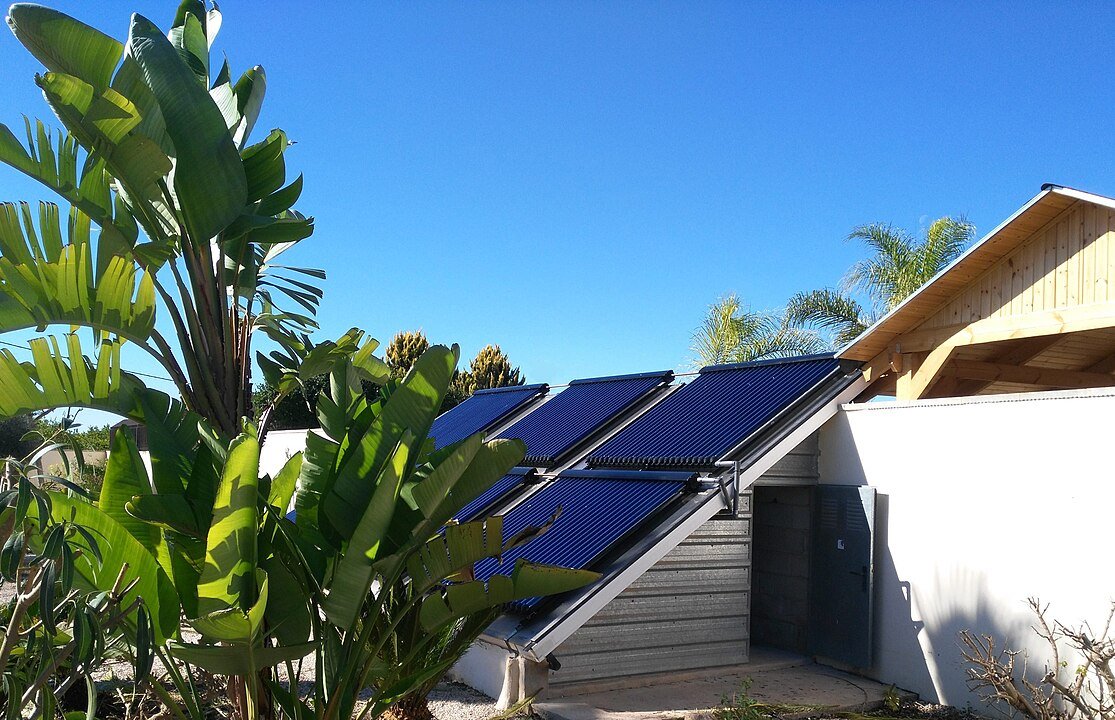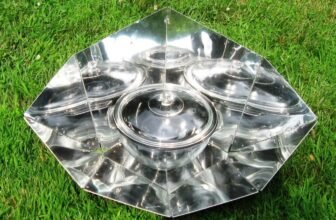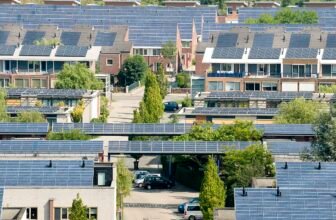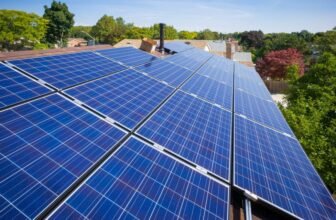
Harnessing the Sun: Are Solar Water Heaters Worth It
On a cool autumn morning in the countryside, nestled between tall trees and rolling hills, Emma poured herself a steaming cup of tea. The early light of dawn glistened on the panels mounted on her roof. Unlike her neighbors who were bracing for a rise in their energy bills as winter crept in, Emma was relaxed. Two years ago, she had made a decision that changed her relationship with energy: she had installed a solar water heater.
Skeptics had told her it was a gamble. “What happens when it snows?” one had asked. Another warned, “They cost a fortune and don’t last!” But Emma had done her homework, and now, with her utility bills slashed and hot water always on tap, she was quietly vindicated. But was her story typical? Are solar hot water heaters truly worth it?
This is the deep-dive story of solar water heaters , the benefits, the drawbacks, the real-world performance , and everything you need to know if you’re considering making the switch.
What Are Solar Water Heaters?
At their core, solar water heaters use energy from the sun to heat water for household use. These systems typically consist of solar collectors (usually installed on the roof) and a storage tank. When sunlight hits the collectors, it heats a fluid , either water directly or a heat-transfer fluid , which then transfers that heat to your water supply.
There are two main types of solar water heating systems:
-
Active Systems – which use pumps to circulate water or heat-transfer fluids.
-
Passive Systems – which rely on natural convection and gravity to move fluids.
Each has its own pros and cons, but both are built around the same principle: using the abundant, renewable energy of the sun to provide hot water.
Are Solar Hot Water Heaters Worth It?
The big question: are they worth it?
The short answer is yes , for many homeowners, solar water heaters offer substantial long-term savings and environmental benefits. However, the real answer depends on a few key variables:
-
Your geographic location – More sun equals more efficient heating.
-
Your current energy usage and water heating costs – Higher bills mean greater potential savings.
-
Available rebates or tax incentives – These can drastically reduce upfront costs.
-
Your long-term plans – If you plan to stay in your home for a decade or more, the investment pays off handsomely.
Emma, for instance, lives in a temperate region with strong sunlight for most of the year. Her investment in a solar hot water system paid off in less than five years, thanks to a combination of government rebates and the high cost of electric heating in her area.
Benefits of Solar Water Heaters
Let’s talk positives first , and there are many.
1. Energy Cost Savings
This is perhaps the most obvious benefit. Once installed, a solar water heater significantly reduces or even eliminates the need for conventional energy sources to heat water. Depending on your climate and system size, you could save anywhere from 50% to 80% on your water heating bills.
2. Environmentally Friendly
By reducing reliance on fossil fuels, solar water heaters help lower your carbon footprint. Heating water is one of the largest sources of household energy consumption. Going solar helps mitigate this impact in a big way.
3. Low Operating Costs
Solar water heaters have very low operating costs. Since sunlight is free, and most systems are designed to operate with minimal electricity (or none at all, in passive systems), the ongoing expenses are almost negligible.
4. Increased Home Value
A solar hot water system can make your home more attractive to eco-conscious buyers. In many markets, solar installations are considered upgrades that boost property value.
5. Durability and Lifespan
These systems are built to last. With proper maintenance, many solar water heaters can operate efficiently for 20 years or more (we’ll get into this shortly).
Disadvantages of Solar Water Heaters
But it’s not all sunshine and savings. Solar water heaters also come with a few drawbacks that homeowners should carefully consider.
1. High Upfront Cost
The initial cost of a solar water heater can range from $2,000 to $7,000 or more, depending on system size and complexity. This includes purchase, installation, and possible roof reinforcements. While rebates can reduce this amount, it’s still a significant investment.
2. Weather Dependent
While solar heaters work well in sunny climates, performance can dip in extended cloudy or rainy periods. Most systems include a backup heater (either electric or gas), but that increases complexity and cost.
3. Space Requirements
You need adequate roof space with good sun exposure. Shaded or north-facing roofs can reduce efficiency and may not be suitable for installation.
4. Installation Complexity
Installing a solar water heater isn’t a DIY project. It requires professional installation, which can be complicated, especially for retrofits on older homes.
5. Maintenance Requirements
Although maintenance is minimal, it’s still required. Neglect can reduce performance and lifespan.
Does a Solar Water Heater Work in Winter?
A common myth is that solar water heaters become useless in winter. In reality, most systems are designed to function year-round, even in cold climates.
Here’s how they manage:
-
Evacuated tube collectors, which are common in colder regions, are excellent at retaining heat and work even in sub-zero temperatures.
-
Antifreeze heat transfer systems use non-freezing fluids like propylene glycol to capture solar heat and transfer it to the water, even in freezing conditions.
-
Backup systems, like electric boosters or gas heaters, kick in during periods of low solar gain to ensure a consistent supply of hot water.
Emma experienced this herself. While her system wasn’t quite as efficient during the short, cloudy days of December, her electric backup ensured she never ran out of hot water.
What Is the Lifespan of a Solar Water Heater?
Solar water heaters are built to last. A well-maintained system can easily operate for 20 to 25 years.
-
Collectors usually have the longest lifespan , often 20 years or more.
-
Storage tanks may last 10–15 years, but newer, corrosion-resistant materials are improving this.
-
Pumps and controls (in active systems) may need replacement after 10 years.
Regular inspections and occasional part replacements are key to maximizing your system’s lifespan.
What Is One Limitation in Using Solar Water Heater?
The biggest limitation? Dependence on sunlight.
In regions with prolonged cloudy or rainy seasons, or where snow may cover collectors, solar performance drops. That doesn’t mean no hot water , but it does mean relying more on backup heating systems.
This limitation is manageable, but it’s worth considering if you live in a northern latitude or an area with frequent cloud cover.
How Long Do Solar Water Heater Panels Last?
The solar collector panels , the heart of your system , are designed for longevity. Most:
-
Last between 20 to 30 years.
-
Come with warranties of 10–20 years.
-
Require minimal maintenance, often just an annual cleaning and inspection.
Factors like panel type (flat-plate vs. evacuated tube), environmental conditions, and quality of installation affect lifespan. Evacuated tube systems, for example, are more durable in extreme temperatures and often outlast flat-plate collectors.
Do Solar Water Heaters Need Maintenance?
Yes, but not much.
Annual maintenance is typically enough to keep your system running optimally. Here’s what it involves:
-
Checking for leaks in pipes and connections.
-
Cleaning the collectors to remove dirt or debris.
-
Inspecting the pump and controller (for active systems).
-
Checking antifreeze levels (in indirect systems).
-
Flushing the tank periodically to remove sediment buildup.
Some installers offer maintenance packages or annual service contracts. If you’re not a DIYer, this is a good option to consider.
How Long Does Water Stay Hot in a Solar Water Heater?
This depends on the insulation quality of your storage tank. Most modern solar hot water systems can keep water hot for 24 to 48 hours, sometimes longer.
Factors that influence this include:
-
Tank size and insulation thickness
-
Ambient temperature
-
Whether the tank is located indoors or outdoors
-
Daily water usage
For example, Emma’s 300-liter tank, located inside an insulated utility room, often retained heat well into the next day , even during colder months.
Which Type of Solar Water Heater Is Best?
There’s no one-size-fits-all answer, but here’s a guide:
| System Type | Best For |
|---|---|
| Flat-plate collectors | Warm or mild climates with regular sunshine. |
| Evacuated tube collectors | Cold climates or areas with frequent overcast days. |
| Active systems (with pump) | Larger households needing high volume and efficiency. |
| Passive systems | Smaller households, or budget-conscious users in sunny regions. |
| Thermosiphon systems | Simple design, works well in tropical or warm regions. |
In Emma’s case, a passive thermosiphon system with evacuated tube collectors proved ideal , reliable, efficient, and requiring minimal maintenance.
Final Thoughts: Should You Go Solar for Hot Water?
If you live in a sunny region, care about reducing energy bills, and plan to stay in your home for the long haul, a solar water heater is absolutely worth considering.
Even in cooler climates, newer technology makes solar water heating viable , and often surprisingly efficient , year-round. The key is choosing the right system for your climate, your budget, and your household needs.
Emma’s story isn’t unique , thousands of homeowners are making the transition every year, combining cost savings with a reduced carbon footprint. And while the journey starts with an investment, the returns , both financial and environmental , can be substantial.
So if you’re looking for a smarter way to heat your water, maybe it’s time to let the sun do the work.
Ready to Take the Plunge?
Before you buy, consider these steps:
-
Get quotes from certified solar installers.
-
Research incentives available in your area.
-
Evaluate your roof’s solar potential.
-
Decide if you want a backup heating source.
With a bit of planning, you could be sipping your own sunrise tea, knowing the sun took care of your hot water , just like Emma.




